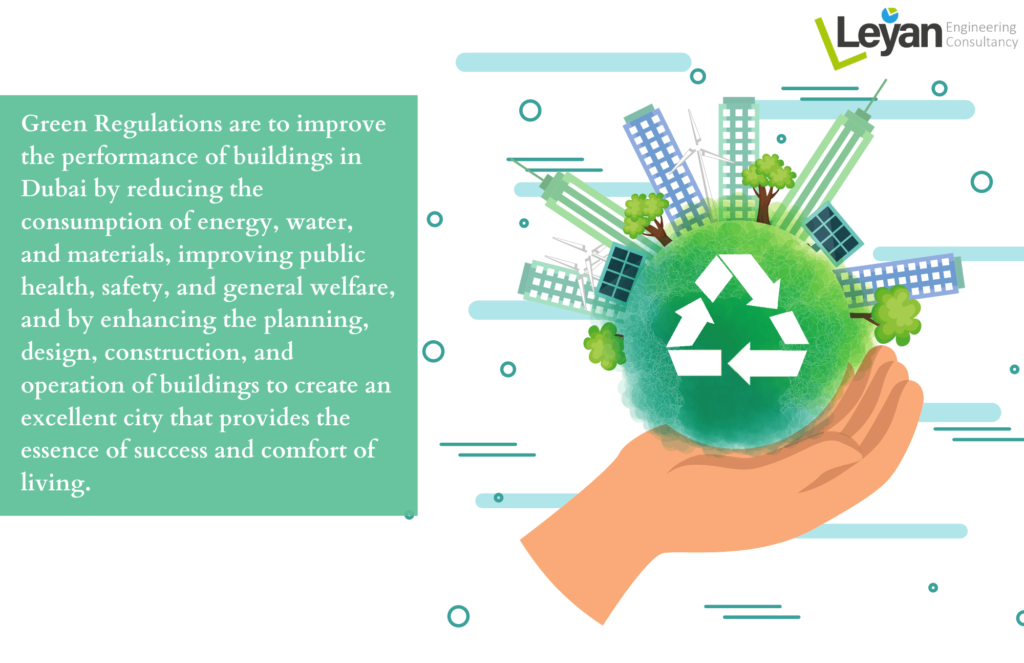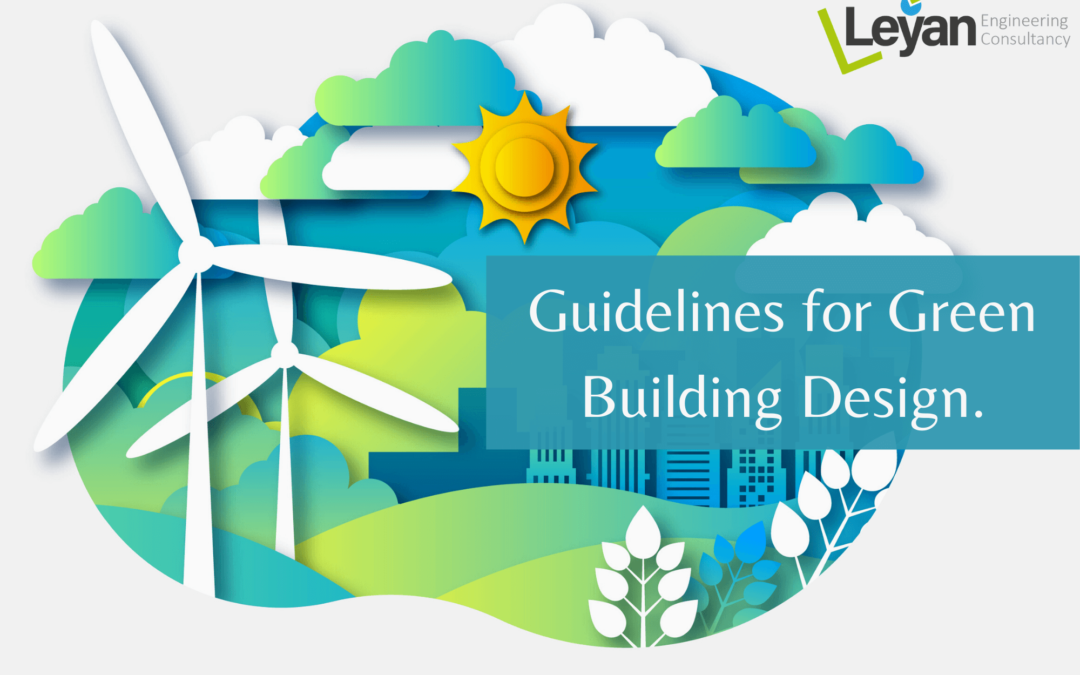The objective of sustainable building is to reduce minimum deprivation of resources. In another way, to ensure a comfortable and safe environment for living.
It’s widely accepted how the construction sector creates major global greenhouse gases and consumes 40% of resources. As a part of the UAE Green Economy in line with UAE Vision 2021, and the UAE Energy Plan for 2050, the country embraced the designing and implementation of green buildings.
UAE introduced initiatives to mandate that all new buildings follow the Green Building Standards to achieve a minimum Pearl 1 Certification. Government buildings must have a minimum of 2 Pearls. In the previous blogs, we have discussed the essential aspects of Green Building in the UAE.
With clear guidelines and regulations, the real estate industry shifted its focus onto sustainable construction.
Green building regulations for designing and construction:
1. Access & Mobility
– There must be more than 20 parking spaces for all new buildings other than villas with preferred parking for people with special needs.
– There must be secure and covered storage spaces for bicycles within the building or shaded areas located within 30 meres from the entrance.
2. Ecology & Landscaping
– A minimum of 25% of the total planted area must have plant and tree species adapted to the regional climate.
For every new villa, you must grow at least one palm tree in the area.
3. Neighborhood Pollution
Permanently installed exterior lighting in the new building must comply:
– Accent lighting must be shielded to block the lighting of the night sky.
– You must use downward directed lighting for the lighting of signage;
– You must fit all exterior lighting to ensure that light does not operate during daylight.
4. Climate & Outdoor Comfort
– All external roofing surfaces must have a minimum SRI (Solar Reflective Index) roof. But if the roof is vegetated, the former requirements are waived.
– At least 75% of the total external area must be painted with light colors.
– There must be pedestrian linkages within the plot area.
5. Responsible Construction
– No construction activity may cause surface runoff, erosion, or other land disturbances.
– Discharges must avoid watercourses and groundwater pollution.
– Waste materials generated in the construction site.
– For hazardous waste disposal, there must be a permit from Dubai Municipality Environment Department.
– You should not use potable water for construction activities.
– You must minimize light pollution in the construction areas.

6. Ventilation & Air quality
– Minimum ventilation requirements for adequate Indoor air quality.
– Air inlets & exhausts: You must locate the ventilation system at a suitable distance from sources of contamination.
– Isolation of pollutants: Buildings where activities that produce chemicals or hazardous products must have separate air extraction systems to ensure they do not enter adjacent rooms.
– Indoor air quality: Suitable ventilation for the building occupants and ensure air quality with a certificate by Dubai municipality.
– Parking Ventilation: There must be mechanical ventilation to ensure Carbon Monoxide (CO) concentration is below fifty (50) parts per million (ppm).
– Environmental Tobacco: You’re only allowed to smoke in specific places. And the permitted area must be at least 25 feet away from entrances, doors, and windows.
7. Low Emitting Materials
All paints and coating used in the building should not exceed the allowed limits of Volatile Organic Compound (VOC).
8. Provision of Natural Light
You must provide adequate natural daylight to improve conditions for the occupants and reduce the usage of electrical lighting. Under Dubai Municipality building regulations, all new office, residential or commercial buildings must have a direct line of sight to the outdoor environment.
9. Water quality systems
All types of equipment and devices must be maintained, cleaned, and checked periodically to minimize the risk of Legionella bacteria or germs contamination.
10. Renewable Energy
– For all new buildings, you must install a solar water heating system to provide 75% hot water. You must fit it to obtain maximum benefit from the solar heat. – Waste Management: There must be a bulky waste storage area designated solely for waste collection.


Recent Comments